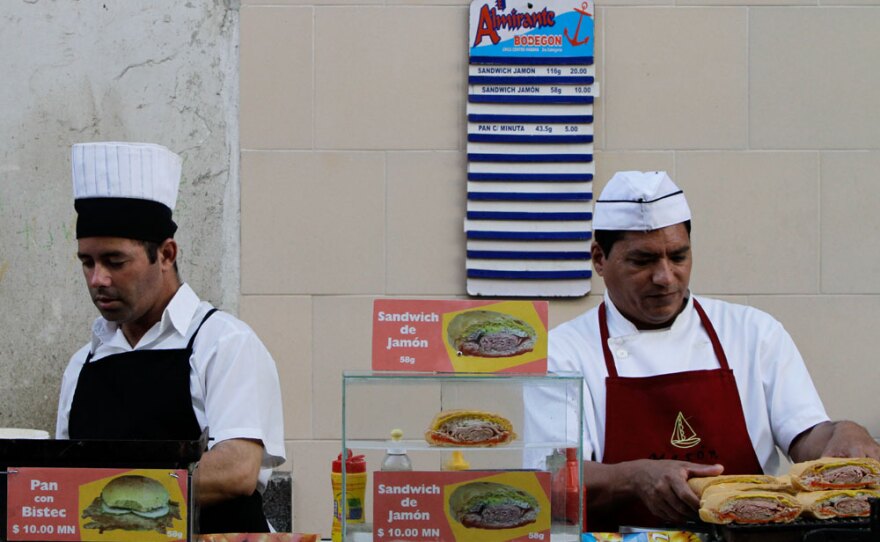Earlier this week, Cuba's government revealed plans to lay off more than 500,000 workers in the next six months, sending one-tenth of the country's labor force to find other jobs.
New opportunities for small, private entrepreneurs and cooperatives are supposed to absorb many of the displaced workers.
While some Cubans are already drawing up business plans, there are also signs the island is in for a rough transition.

In Havana's Miramar neighborhood, a seaside shopping area called La Copa reflects much of what is wrong with Cuba's state-run economy. The surrounding neighborhood is full of tourist hotels, foreign businesses and Cuban elites with money to spend.
Yet many of the storefronts in La Copa are empty. Dozens of Cubans mill about during the day with nothing to do.
On the corner is a drab pizzeria with more flies than customers at lunchtime. Under Cuban President Raul Castro's new plan, it's the kind of state-run business that could be converted into a cooperative and run by workers such as Carlos Alberto Gonzalez, who might be motivated to fix it up if they could keep the profits and have a say in how things run.
"I think these changes are really important, and a good thing," Gonzalez says. "With personal incentives, the workers will make more, the state will make more, and customers will get better service."
Gonzalez and others say they're excited about new opportunities, but also full of questions. How will taxes be assessed? If the government starts renting out its commercial properties, will state banks give loans for start-up capital? And what happens if some Cubans get rich? Will the government allow that?
Locksmith Noel Martinez cuts keys along a busy Havana street. He is one of the 150,000 or so Cubans already licensed to work for themselves. He pays about 10 percent of his earnings to the state in taxes.
While some Havana residents say they're worried the mass layoffs will lead to more crime, Martinez says Cuba is ready for a new wave of entrepreneurs.
"You have more freedom because you can set your own hours," Martinez says. "I think this is a form of employment that will really help our economy."
In the early 1990s, when the Soviet's Union's demise sent Cuba's economy off a cliff, then-President Fidel Castro let Cubans rent rooms to foreigners and open small restaurants in their homes. The Communist government treated those measures like a necessary evil.
Now, Raul Castro's reforms appear to be different, and more permanent. But after 50 years of state control, it's not clear that a simple management change will work.
It will take time for Cubans to adjust, says Yadira Pavon, whose state-owned beauty shop was made into a cooperative three months ago. The place is in ruins. Its rusting hair dryers were made in the Brezhnev era.
Pavon and her partners have yet to print business cards, they are legally barred from advertising, and their plan seems to mostly consist of charging their old clients more money for similar services.
Other Cubans seem to have good business ideas and aren't only motivated by profits.
Musician Inti Santana is part of a group that wants to open a cafe that will have live music and an art gallery space. They like the idea of a workplace where the boss is neither a capitalist owner nor a state bureaucrat.
"This will be something totally new," Santana says. "We want a democratic workplace, where we'll all participate in decision-making."
While economics may be driving these reforms, there will surely be unknown political effects as well, as more Cubans work and make decisions for themselves.
Copyright 2022 NPR. To see more, visit https://www.npr.org. 9(MDAzMjM2NDYzMDEyMzc1Njk5NjAxNzY3OQ001))






